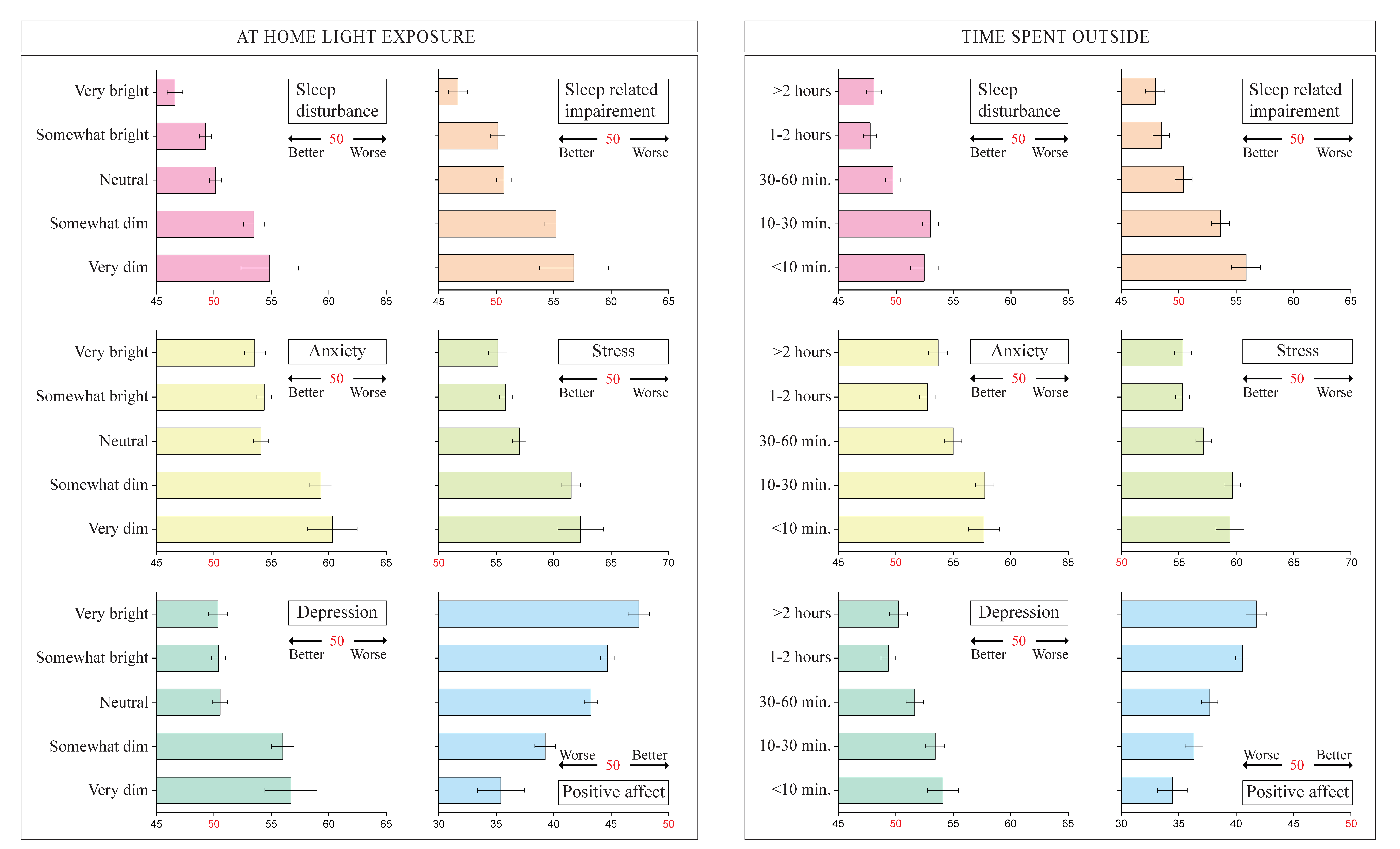The Lighting Research Center (LRC) at Rensselaer Polytechnic Institute is investigating the impacts of working from home or quarantining indoors due to the COVID-19 pandemic on individual daily light exposures. The results showed that indoor and outdoor light exposure significantly impacted people’s sleep quality and psychological health.
LRC conducted a survey on people who had been staying home due to the pandemic in May 2020. The survey collected 600 effective data and found that daily indoor light exposure and time spent outside had a major impact on all survey outcomes, including sleep disturbances, sleep-related impairment, anxiety, stress, depression, and mood.
People spending time under “somewhat bright” to “very bright” lighting reported that they suffered fewer sleep disturbance and less anxiety and depression, comparing to people with “somewhat dim” to “very dim” indoor lighting.

(Image: LRC)
“Sleep quality and mood significantly improved when people spent the majority of their time in a brighter, compared to dimmer, location in their homes,” said LRC researcher Charles Jarboe, who led the study. “If you can add a little more light to your space during the day — one extra lamp, or open your window shades, for example, it could help you feel better, and improve your sleep.”
Another factor was the amount of time spent outdoors. The survey results revealed that people who spent one to two hours outdoors each day reported feeling significantly less anxiety, stress, and depression, and reported that they slept better than those who spent less than 30 minutes outdoors each day. The impact leveled off after two hours, however. Morning light provided the greatest benefits.
LRC noted that typical indoor lighting provides less than 100 lux, which is not bright enough to stimulate the circadian clock as natural light source provide 1,000 to 3,000 lux on a cloudy morning to as much as 100,000 lux at the eye on a bright sunny day.
Circadian lighting products or human centric lighting products are designed to provide stronger light stimulate melatonin production during the day time and dimmer and softer light which suppress melatonin after dark.





 CN
TW
EN
CN
TW
EN






